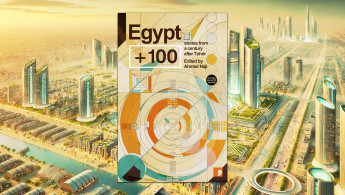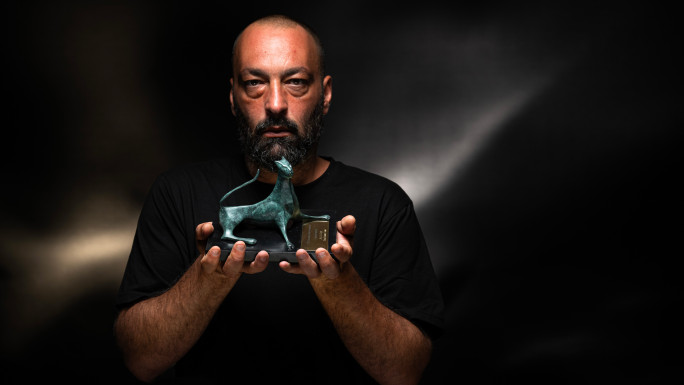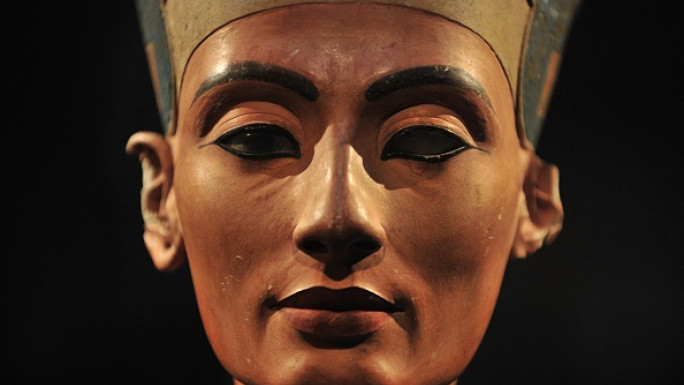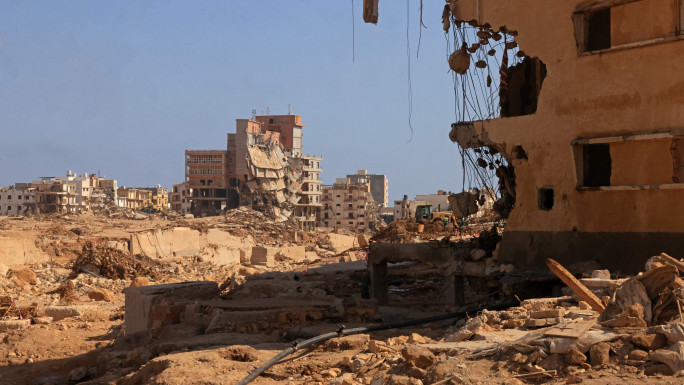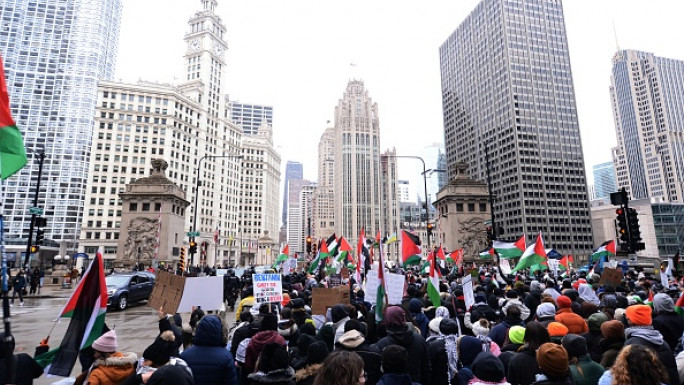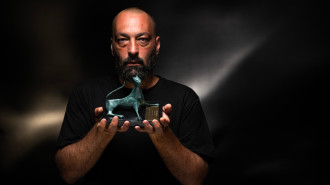Egypt +100: Reimagining Egypt a century after the revolution
Egyptian writers are great at writing sci-fi and dystopian fiction but are completely unappreciated.
This is quite a bold and generic statement to make, but hear me out: for decades, Western writers have been conjuring up dystopian world orders in which your every move is monitored by state surveillance, every written word censored and every spoken sentence informed on, but Egyptians have been living this authoritarian reality for the past seven decades.
This then poses the question, what does an Egyptian sci-fi writer write about when your current reality is as far-fetched as the sci-fi novels of American and British writers?
Egyptian author and journalist Ahmed Naji attempts to answer this question in the recently released anthology he edited for Comma Press, Egypt 100 +: Stories from a Century after Tahrir.
In his introduction he asks, when you live in a country where the authoritarian leader has an “unlimited appetite for… science fiction,” is already obsessed with absurd architecture and mega-structures, and where an army medical general (Dr Abdel Atty) has people believe that he has an invention that can zap AIDS and hepatitis and convert the viral proteins into kebabs and kofta for people to eat, how can an Egyptian sci-fi writer conjure something even more far-fetched?
Naji is the perfect editor for this anthology of short stories written by 12 Egyptian writers, which asks them to reimagine Egypt 100 years after the 2011 January revolution in Tahrir Square.
In 2016, he was sentenced to two years in prison for “violating public decency” when his novel, Using Life, reportedly caused a reader distress and heart palpitations.
Naji served ten months of this sentence in Cairo’s Tora Prison and has experienced first-hand what it is to live in an authoritarian regime where there is no freedom of speech or expression and where you can be imprisoned for writing fiction.
Orwell’s 1984 has nothing on present-day Egypt.
One of the things that surprised me most about Egypt +100 was that the 12 writers were posed with the opportunity to give Egypt a completely fresh start. They could have turned Egypt into anything they wanted.
But in 11 out of the 12 short stories, Egypt is still locked in the cage of a totalitarian regime, albeit in either highly stylised, automated and futuristic societies or in hostile wastelands ravaged by climate change, war or natural disasters.
My interpretation of this, as an Egyptian, is that Egyptians are so burned out by decades of unjust, corrupt regimes, that they have run out of optimism for the future.
Yasmine El Rashidi’s Oral History of a Past, Obsolete and Forgotten, hints at an Egypt that has become a utopia, although it is not explicit.
In El Rashidi’s Egypt, you don’t need to physically work, write or travel, you just think and your thoughts come into being, or the verse as she calls it. Her protagonist is surprised at the authoritarianism of 2011 Egypt in which her late grandmother was an organiser.
I could not help but draw parallels between the stories and present-day Egypt; some of the dystopias were honestly plausible.
Take Mansoura Ez-Eldin’s The Wilderness Facilities where everything in society is run by robots — citizens are required to inform authorities on each other, and only those who abide by state regulations are permitted to live in the city; rebels and dissenters are exiled to wastelands and “wilderness facilities.”
Ez-Eldin describes towering building and mega-structures that have been purposely built this way to make citizens feel small. This does not read far off from current President Abdel Fatah al-Sisi’s grand architectural visions and his pouring of billions of dollars into Cairo’s New City, or in his words, “New Republic.”
Or, Belal Fadl’s God Only Knows, where our protagonist is a mufti from generations of muftis, examining how to pass fatwas in the year 2111 for issues such as cryogenic freezing technologies for the dead, making eating pork halal after a rare virus wipes out all other types of livestock leaving only pigs, and whether alcohol can now be made permissible to drink after medical advances eliminate all its harmful side effects.
Again, this does not seem far-fetched at all in a country where many an unusual fatwa has been passed, such as a woman breast-feeding her male colleague five times to turn him into her mahram so that mixed-gender workplaces are halal, or that if Hajj is too expensive, Egyptians can perform a pilgrimage to the Sinai instead.
One of the most fascinating aspects of Egyptian sci-fi, as pointed out by editor Ahmed Naji in his introduction, and in Arabic sci-fi writing in general, is that the concept of time is not linear, and this has its roots in Islamic tradition.
In addition, there is the prevalent belief in the realm of the unseen or al-ghayb. This is excellently demonstrated in Ahmed El-Fakharany’s Everything is Great in Rome in which Cairo in the year 2111 has transfigured into classical Rome.
In El-Fakharany’s story, the Egyptian president has gone into hiding and is found in a Mamluk-period palace, sitting at the top of a tower which revolves around the Sun (reminiscent of the Pharoah, who in the Quran is narrated to have constructed tall structures to be able to look upon God and the Heavens).
Everything is Great in Rome is an interesting take on a future that is close to Islamic beliefs of end times, where instead of the world becoming even more technologically advanced, it goes backwards to a time mirroring that of the Romans.
The anthology ends with Naji’s own short story, The Tanta White People Museum.
Here, Naji reimagines a colonial world order: The world has been hit by an epidemic and an Indian doctor develops a vaccine that saves your life but has the side effect of turning your skin permanently darker.
Many white people refuse to have the vaccine and die.
Other white people immigrate to the Global South and in 2111, Arab and Asian lands are flourishing again, and it is white immigrants who are marginalised, exploited, treated with racism, and who face deportation.
Naji has completely turned the unfair world we currently live in, on its head.
All 12 writers are highly talented at making what should be your worst nightmare seem plausible.
And just like most Egyptian writers, they all have that gift of writing about the dark, violent and disturbing side of Egypt in a way that is not distressing or vulgar.
Yousra Samir Imran is a British Egyptian writer and author based in Yorkshire. She is the author of Hijab and Red Lipstick, published by Hashtag Press
Follow her on Twitter: @UNDERYOURABAYA
